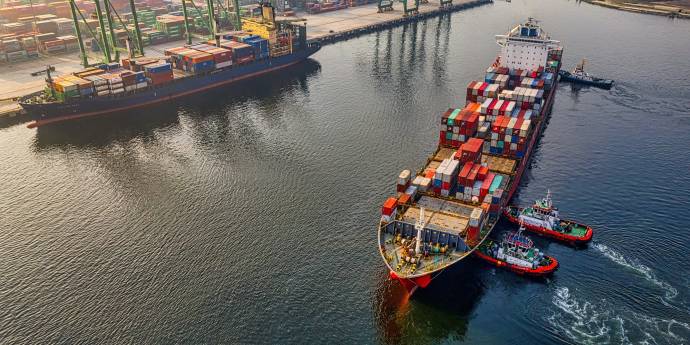The key to achieving sustainable growth
The circular economy can help unlock economic growth by reducing waste, optimising resource usage and creating new business models.

If you missed the Entering uncharted waters? session at the 2023 IoD Leadership Conference, we’ve captured some outtakes from it. These highlight some key themes from the session and outline a few specific actions for directors and boards arising from it.Key actions for directors and boards to consider are:- Consider impact on your organisation/company of major changing geopolitical context: Look at supply chain options and trading partners, and assess the resilience of them in the face of ongoing geopolitical issues, alongside the economic implications (including inflation and exchange rate impacts).
- Risk management and scenarios: Manage uncertainty by being clear about the sources of that uncertainty and how to mitigate and manage risks.
- Climate change responses: Think about potential impacts and how to build climate resilience.
In this session, former New Zealand Cabinet Minister and diplomat Tim Groser shared his perspective on an international point of inflection.
Grosser commented that the “hashtag” for the 1920s was the “Roaring Twenties” and mused about what this would be in the 2020s?
The “Roaring Twenties” captured the zeitgeist, or spirit of that decade - bouncing back from the effects of the First World War In the 2020s, we’re now bouncing back from the Covid pandemic and facing many reality checks after a long period of stability and relative certainty.
Groser says that in the past few years, geopolitics has become a greater focus for directors than over the previous few decades.
Globalisation is declining. It is likely that globalisation of the world economy continued through the Covid pandemic but the world has potentially moved into a new era of “deglobalisation”.
In Groser’s view, government policy and public sentiment began to shift toward deglobalisation around 2015 as concerns were raised in the United States (US) about the impact on the labour market of imports from low-wage countries. This fuelled a trade war between the US and China.
Since then, the pandemic raised questions about the fragility of global supply chains – which generated demands for “reshoring” production domestically.
However, as noted above globalisation continued in the early 2020s, with US firms holding on to relationships with foreign suppliers.
Trade may have improved economies’ resilience during the Covid pandemic, with international trade increasing to meet demands.
Despite this, Covid‑related disruptions to the global supply chain brought issues with the long-standing just-in-time business model to the fore. This approach to supply chains minimised the inventory levels of firms. Supply chain disruptions and company concerns for increased supply chain resilience have seen the rise of a just-in-case model. This means keeping “safety” stock levels in case of sudden demand. It may also include maintaining higher levels of cash on balance sheets in the face of the financial uncertainty caused by inflation and the prospect of recession.
The Russian invasion of Ukraine in February 2022 exposed Europe’s dependence on Russia for energy, and created new demands for “reshoring” and also “friend-shoring”, i.e. trading only with friendly countries.
“Friend-shoring” aims to improve resilience to geopolitical shocks, such as war, and decrease resilience to other shocks, such as pandemics.
The international institutions created last century are decreasing in strength. This is evident in the reduced influence of US-sponsored organisations such as the United Nations (UN), International Bank for Reconstruction and Development (IBRD), the International Monetary Fund (IMF) and the World Trade Organisation (WTO). The General Agreement on Tariffs and Trade (GATT) is also losing relevance and US dollar dominance is under challenge. This signals a move away from a unipolar world led by the US.
Moves away from a rule-based order overseen through multilateral institutions could result in a “G2” world dominated by China and the US – with concomitant issues due to the distrust between these two “superpowers”.
At a macro level, three other broad changes are worth paying attention to in Groser’s view.
As a final observation, he reflected on the “golden arches” theory.
Economist Thomas Friedman’s “Golden Arches Theory of Conflict Prevention”, first published in 1996, spoke of the ‘peace dividend’ of globalisation. This theory looked at the positive effect of globalisation on foreign policy and conflict, observing that “countries with McDonald’s within their borders do not go to war with other countries with McDonalds within their borders.” While slightly tongue in cheek, the theory had weight when first published and showed the strong link between peace and capitalism.
However, this theory has since been debunked, with Russia first invading and annexing the Crimea in 2014 (both countries had McDonalds outlets), and more recently invading Ukraine. This lead to McDonalds withdrawing all its outlets in the Crimea, and closing all its branches in Russia.
Three key actions could be considered by New Zealand directors and boards:
1. Consider the impacts on your organisation/company of the changing geopolitical context:
2. Risk management and scenarios:
3. Climate change: